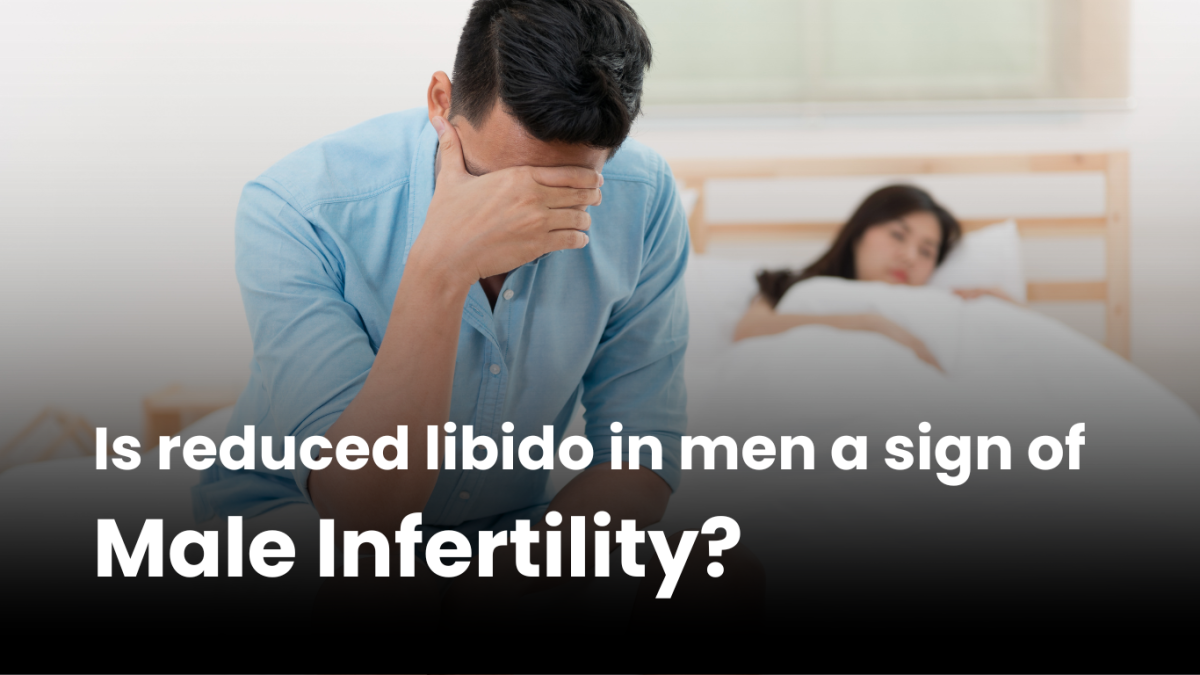
Share This Story
It's completely natural to sometimes not feel as interested in sex, but if you notice that your lack of interest lasts for a long time, there might be a deeper reason behind it.
Sexual desire and fertility are integral aspects of overall well-being and vitality. However, factors such as stress, hormonal imbalances, and lifestyle choices can impact libido and reproductive health.
Understanding Sexual Desire
Sexual desire, also known as libido, refers to the inclination or interest in engaging in sexual activity. It can be influenced by physical, emotional, and psychological factors, including hormonal fluctuations, stress levels, relationship dynamics, and overall health.
It’s also common for your level of interest not to always match that of your partner. However, when someone consistently experiences low libido over an extended period, it might be an indication of an underlying health problem:

Low testosterone
Testosterone is responsible for stimulating sperm production. When your testosterone levels decrease, your desire for sex also decreases.

Medicines Side Effect
Taking certain medications can lower testosterone levels, which in turn may lead to low libido.

Stress or Depression
This is because stress can disrupt your hormone levels. This narrowing restricts blood flow and potentially causes ED.

Aging
As men age, typically from their 40s onwards, there is a tendency for libido to decrease.

Sleep problems
Testosterone levels could decrease by 10 to 15% after a week of sleep restriction to five hours per night.

Chronic illness
When you’re not feeling well due to the effects of a chronic health condition, such as chronic pain, sex is likely low on your list of priorities.
TCM Perspective on Sexual Desire and Fertility
In Traditional Chinese Medicine, sexual desire and fertility are viewed as manifestations of the body’s Qi (vital energy) and Jing (essence). When Qi and Jing are abundant and flowing harmoniously, sexual desire is robust, and fertility is optimized. However, imbalances or deficiencies in Qi and Jing can lead to issues such as low libido, infertility, and reproductive disorders.
Restoring Sexual Desire and Fertility with TCM
Acupuncture: By targeting acupuncture points related to sexual function and reproductive health, acupuncture can regulate hormone levels, improve blood circulation to the reproductive organs, and reduce stress, thereby enhancing libido.
Herbal Medicine: TCM herbal medicine offers a wealth of natural remedies for restoring sexual desire. Herbal formulas tailored to individual needs can nourish Qi and Jing, tonify the kidneys (which are considered the foundation of reproductive health in TCM), and regulate hormonal imbalances. Herbs such as Horny Goat Weed, Ginseng, and Dong Quai are commonly used to support sexual vitality and fertility.
Diet and Nutrition: According to TCM principles, dietary choices play a crucial role in supporting sexual health and fertility. Foods that nourish Yin and Yang, such as leafy greens, root vegetables, seeds, and nuts, are recommended for promoting reproductive vitality. Avoiding excessive consumption of processed foods, sugar, alcohol, and caffeine can also help balance hormones and enhance fertility.
Lifestyle Modifications: TCM emphasizes the importance of lifestyle factors in maintaining overall health and well-being, including sexual health and fertility. Practices such as adequate sleep, regular exercise, and maintaining a healthy weight can all contribute to restoring libido.
Consult Us
Get In Touch





